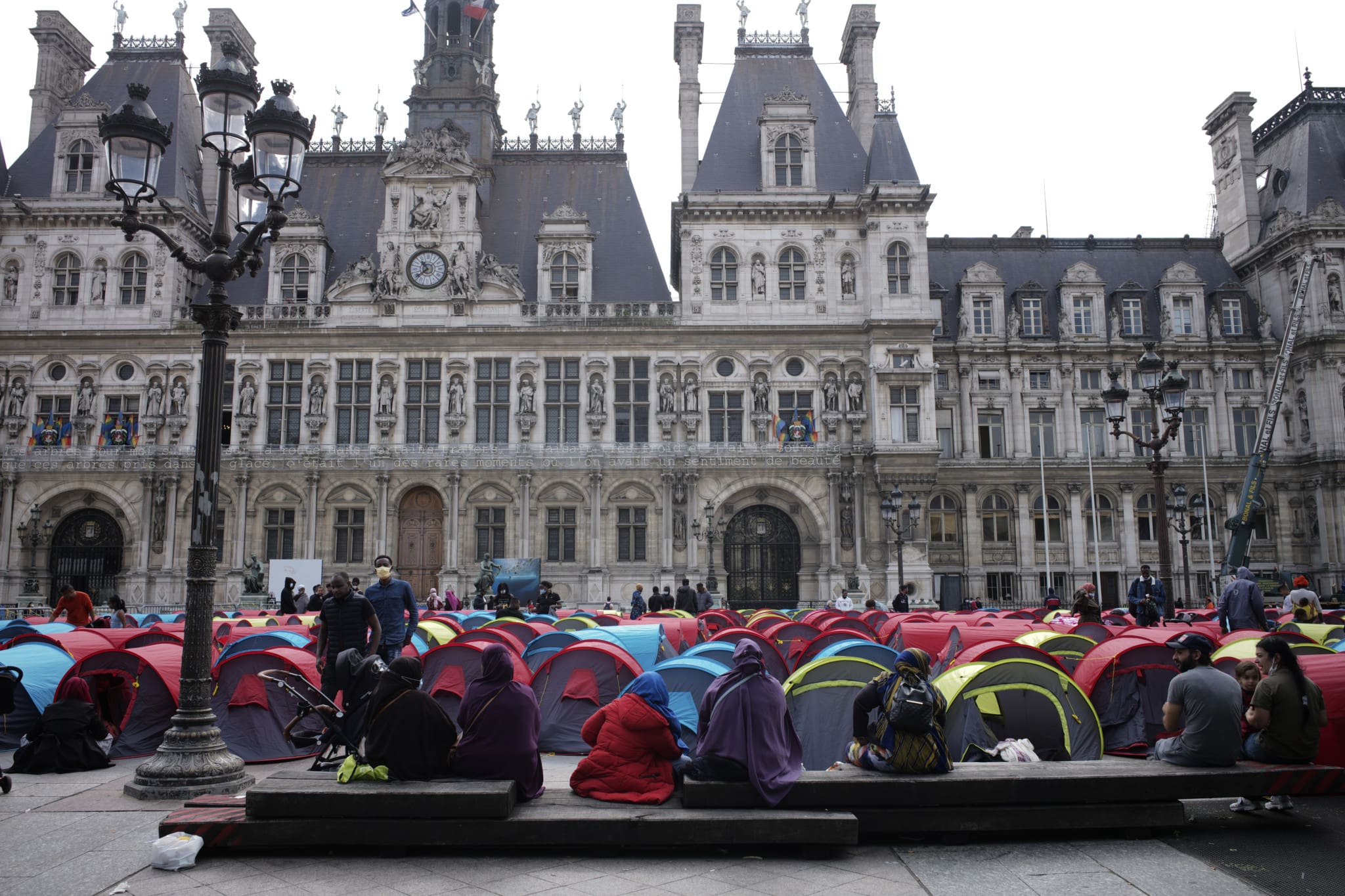Despite widespread public criticism of the French government’s plans to redistribute a large cohort of asylum seekers across multiple regions to live among rural communities, lawmakers in the country continue to endorse the controversial scheme.
According to a parliamentary information report seen by Le Monde newspaper, the Renaissance deputies of Val-de-Marne and Maine-et-Loire, Mathieu Lefèvre and Stella Dupont, respectively, made a “favorable” assessment of the plans to move asylum applicants out of the saturated Île-de-France region, in which Paris is located, to all other regions with the exceptions of Hauts-de-France — home of the infamous Calais jungle — and Corsica.
The report recommends a continuation of the “directive orientation” policy adopted by the French government back in January 2021, which involves offering greater support to regions where local leaders agree to receive higher numbers of migrants.
The policy has caused significant civil tension in a number of regions, not least in the department of Loire-Atlantique, where the home of the left-wing mayor of Saint-Brevin-les-Pins, Yannick Morez, was the target of a suspected arson attack by local residents incandescent with rage at his support to establish an asylum reception center in the small seaside town.
[pp id=70712]
Under the redistribution plans, as Le Monde describes, regions are categorized based on the accommodation capacity in the area, as well as the unemployment rate and the local GDP of each region.
While the personal circumstances of asylum seekers are supposed to be taken into consideration, the destination allocated to each individual is “chosen randomly by an algorithm,” the parliamentary report states. Those who refuse to adhere to the plans are consequently deprived of benefiting from accommodation and a subsistence allowance for the duration of their asylum claim.
The authors of the report justify the continuation of the “directive orientation” policy due to its perceived successes, at least on a superficial level. They claim that in the last two years, 48,230 asylum seekers have been offered accommodation in an alternative region of France to where they had been residing, of which 30,402 individuals took up the offer.
The policy has reportedly seen the percentage of asylum seekers living in the Paris region drop from half of all new arrivals to around a third, and the government aims to reduce this further to 23 percent by the end of this year.
[pp id=49535]
While the French government may hail this as a success, the policy is hugely unpopular among the electorate, particularly those residents in rural communities who feel they are having new arrivals forced upon them and are having to deal with the social ramifications.
In February, there were reports of strong opposition to plans to convert a disused inn into a 40-berth asylum center in the small French town of Beyssenac.
“We don’t know who the people will be, so we don’t know what it will look like around the village and that worries us. People are used to leaving their doors open, and they won’t be able to do that anymore,” one opponent, Philippe Ponge, the founder of the “Save Beyssenac” association, told France Bleu.
A plan in January to settle up to 70 refugee families in the rural French town of Callac was ultimately withdrawn after mass protests from residents, and there have been several demonstrations from right-wing groups in Brittany, Corrèze, Indre and Paris.






